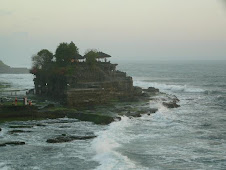By Mike Oboh
KANO, Nigeria (Reuters) - Police in Nigeria have arrested scores of motorcycle taxi riders with dried fruit shells, paint pots or pieces of rubber tire tied to their heads with string to avoid a new law requiring them to wear helmets.
The regulations have caused chaos around Africa's most populous nation, with motorcyclists complaining helmets are too expensive and some passengers refusing to wear them fearing they will catch skin disease or be put under a black magic spell.
The law, which came into force on January 1, pits two factions equally feared by the common motorist against one another: erratic motorcycle taxis known as "Okadas," whose owners are notorious for road-rage, and the bribe-hungry traffic police.
Some bikers have used calabashes -- dried shells of pumpkin-sized fruit usually used as a bowl -- or pots and pans tied to their heads with string to try to dodge the rules.
Construction workers have set up a lucrative trade renting out their safety helmets for around 500 naira ($3.60) a day.
"They use pots, plates, calabashes, rubber and plastic as makeshift helmets," said Yusuf Garba, commander of the Federal Road Safety Commission in the northern town of Kano.
"We will not tolerate this. We gave them enough time to purchase helmets. Six months ago the price of helmets was below 800 naira so complaints about non-availability and high prices are no excuse," he told Reuters.
Helmet prices have since risen sharply as sellers cash in on demand.
BIKES IMPOUNDED
He said 28 arrests had been made in Kano. Newspapers have reported more arrests in other cities. Those detained are fined and their bikes impounded until they buy helmets.
There are tens of thousands of Okadas buzzing around Lagos, a chaotic city of 14 million people, many of them given to unemployed and illiterate youths as part of poverty reduction programs or on hire-purchase schemes run by businessmen.
Most have never been taught traffic rules.
Newspapers quoted passengers as saying they feared the helmets could be laced with magic spells so as to knock the wearer unconscious and make them easier to rob, while others feared they would pick up an infection.
One columnist said transportation can already carry a health risk, and recounted how he had picked up a bedbug while sitting on a bus.
"The story is that people who have scabies, craw-craw, ringworm, dandruff and all other such diseases would easily infect others with them through the helmets," Steve Nwosu wrote in the Daily Sun.
"They ironically forget that the same diseases are also deposited on, and generously transferred from, car seats and their headrests."
(For full Reuters Africa coverage and to have your say on the top issues, visit: http://africa.reuters.com/ )
(Writing by Nick Tattersall, editing by Peter Millership)
 download latest Opera for PC or Operamini for handphone
download latest Opera for PC or Operamini for handphone 



No comments:
Post a Comment